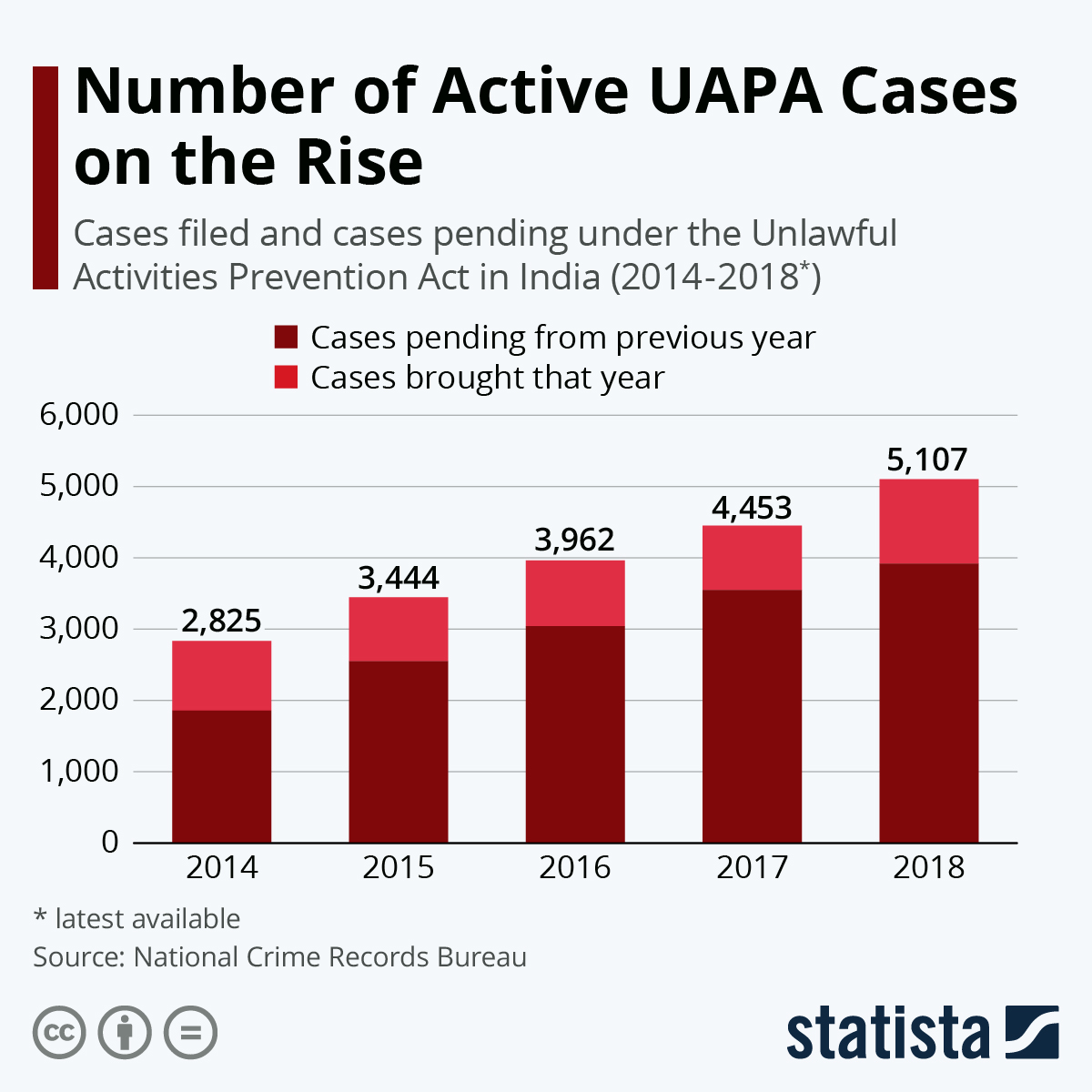Global human rights watchdog Amnesty International has described the government clampdown on its India operations as “unprecedented in a democracy” and a “huge escalation in repression.”
On Monday, September 29, Amnesty International India (AII) announced that they’re being forced to suspend their work in the country as their bank accounts have been frozen by the government over “unfounded and motivated” allegations of violating the Foreign Contribution (Regulation) Act, 2010 (FCRA).
The FCRA is a controversial law that regulates foreign donations and ensures it doesn’t affect internal security in India. Activists and NGOs have called it a “death knell” that would silence dissenting voices.
In an interview with VICE News over the phone, Ashfaq Khalfan, Director of Law and Policy at Amnesty International, said that “this is shocking in a democratic country, and calls into question the government's commitment to human rights and freedom of expression.”
“India has a vibrant civil society, although many groups face restrictions and harassment. But to have a crackdown that shuts down a human rights organisation nationally is shocking. How far is the government willing to go?” said Khalfan.
In October 2018, the Indian government’s economic intelligence agency Enforcement Directorate (ED) raided AII’s office in the southern Indian city of Bengaluru. The raid lasted 10 hours and looked into the NGO’s accounts related to FCRA funds.
“They came asking for information which was in the public domain,” said Khalfan.
The same year, the ED had frozen more than a dozen bank accounts of environmental NGO Greenpeace after searching their premises on charges of alleged forex violations. Greenpeace had called it a “part of a larger design to muzzle democratic dissent in the country.” The NGO was working on multiple campaigns related to climate crisis.
“This government has launched a crackdown on civil society. It is targeting each individual and organisation that does not agree with its policies,” Priya Pillai, environmental activist and former Greenpeace member, told VICE News. “What happened to Amnesty International is part of this pattern. This is indiscriminate use of power to curb dissent and thereby tearing apart the democratic fabric of the country.”
A 2019 data by global management consultancy firm Bain & Company revealed that foreign contributions to India’s social sector declined by about 40 percent last year amid a series of government crackdown on NGOs. It also said that over 13,000 NGO licenses have been cancelled under the FCRA between 2016 and 2018.
The crackdown on activists has been raising concerns for a while. In 2014, the Indian government’s Intelligence Bureau reported that several foreign-funded NGOs were “taking down Indian developmental projects” by agitating against them. The report also said this severely impacted India’s Gross Domestic Product by two-three percent per year.
The Indian government has drawn severe criticism for charging protesters under the stringent anti-terrorism law, Unlawful Activities Prevention Act (UAPA). Data from the National Crime Record Bureau shows that 1182 people were arrested under the UAPA in 2018, up from 925 arrests in 2014.
The latest round of crackdown on civil society and dissenters is connected to the protests against the controversial Citizenship Amendment Act (CAA). The law seeks to fasten naturalisation process for persecuted minorities, except Muslims, from neighbouring nations. The protests culminated into violence breaking out in the national capital, New Delhi, in February this year.
The Delhi Police have arrested more than a dozen vocal opponents of the proposed citizenship law, naming them in multiple riot cases.
On August 28, AII came out with a detailed report questioning the Delhi Police’s role during the February violence. Early this month, the Delhi Police called the report “lopsided” and “biased against the police.”
On August 5, AII released a human rights report from the newly-formed Union Territory of Jammu and Kashmir—exactly one year after the Indian government took away its special status granted under the Indian Constitution.
Khalfan acknowledged that the government action may be in response to these two reports. “We expected the government to retaliate, but this is more severe than expected,” he said.
The Indian government’s narrative of “Naya Kashmir” or new Kashmir highlights, among other things, the ease for outsiders to attain domicile status in the region and establish businesses. In contrast, the AII report showed detention of political leaders, muzzling of the press, unprecedented restrictions on the internet and lack of access to justice.
Follow Danish Raza and Pallavi Pundir on Twitter.
from VICE US https://ift.tt/3kY3iBW
via cheap web hosting

No comments:
Post a Comment